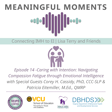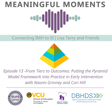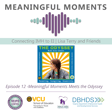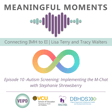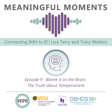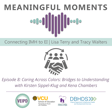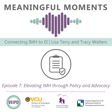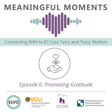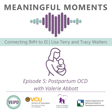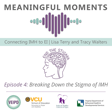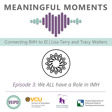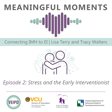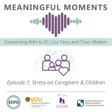
Embracing Calm and Joy: Strategies for Families and Practitioners During the Holidays
A guide to fostering peace and harmony during the holiday season for families and practitioners, emphasizing strategies to build hope and balance. This includes practical tips on managing stress, setting realistic expectations, nurturing self-care, fostering gratitude, and promoting inclusivity. The resource aims to support both personal well-being and professional practices during this busy time, encouraging meaningful connections and resilience.
Visit https://veipd.org/main/index.html or https://www.vaimh.org/ for more information.
This podcast is a collaborative effort from the Virginia Department of Behavioral Health and Developmental Services (through a contract with the Partnership for People with Disabilities at Virginia Commonwealth University).
